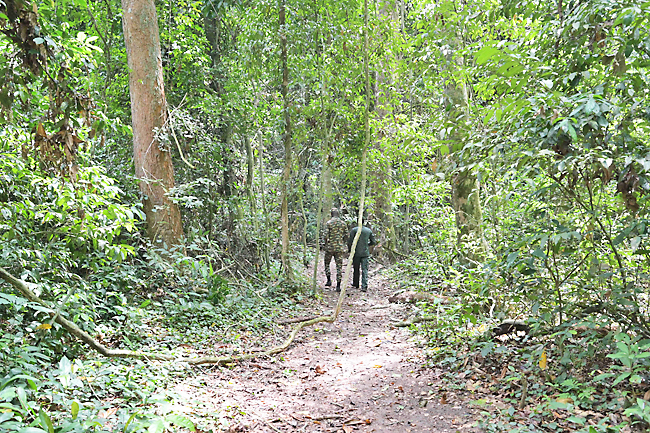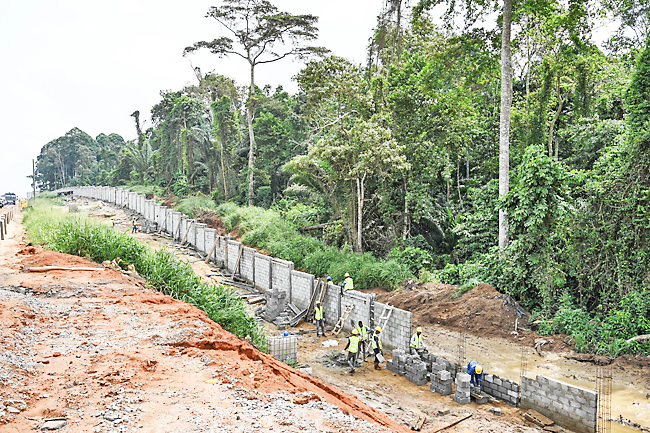ABIDJAN (AFP) – Helping to build a barrier around a primary forest in the centre of Ivory Coast’s Abidjan, Victor is happy to protect the endangered green space from the expanding city.
“We have our own Great Wall of China,” said the construction worker proudly.
In three months’ time, a cinder block fence 10 kilometres long is to run along the edge of the Banco National Park to prevent it from being swallowed up by neighbouring districts.
Along with the Tijuca park in Rio de Janeiro, Brazil, the nature reserve is one of just two virgin forests worldwide to have survived at the heart of a metropolis.
Ivorian ecologist Tom Thalmas Lasme said the wall is crucial in a country that has lost a huge swathe of forests over the past half century.


The nature reserve of 3,474 hectares is home to “around 30 flora species in danger of extinction in West Africa”, he said.
But “in six years, a demographic explosion and a boom in haphazard construction have pecked away” at its edges.
‘ESSENTIAL OXYGEN’
Those who live in the impoverished neighbourhoods along its borders regularly slip in to chop down trees for firewood or hunt its fauna to eat, locals said.
And drivers speeding down the motorway on its western edge have also been known to unwittingly ravage the park, locals said.
There have been “several forest fires caused by motorists tossing in cigarette butts”, said 58-year-old Roger Manet, who lives nearby.
Ivory Coast has lost up to 80 per cent of its natural forests in just 50 years due to agriculture, bush fires, illegal forest exploitation and artisanal mining, the International Union for Conservation of Nature said.
Of the three million hectares of forests the country has left, two million have been designated as 14 separate nature reserves, the Ivorian Office for Parks and Reserves (OIPR) said.
Every year a further 300,000 hectares of trees vanish, it said.
The OIPR said it is building the barrier around the western and northern boundaries of Abidjan’s forest with government and Japanese funding to help halt the destruction.
“The Banco forest absorbs carbon dioxide and emits essential oxygen for Abidjan’s six million inhabitants,” the office’s head Adama Tondossama said.
“We have erected this concrete fence to avoid this green lung from disappearing due to
deforestation.”
‘DIVE INTO THE WOODS’
Lieutenant colonel in charge of the park Fousseni Coulibaly said preserving the reserve also helped regulate rainfall and recharge the underwater reserves feeding the nearby city with drinking water.
Some have said it could also help boost security in an area that borders the country’s largest prison. Escapees have been said to find refuge among its trees.
The Banco park’s upkeep costs the equivalent of USD335,000 a year, said OIPR director Tondossama, essential funding “to preserve it for future generations”.
He said he hopes conservation efforts, including the new wall, will push more tourists to explore the nature reserve and its 80 kilometres of cycling paths.
Tourist from Mauritius Laurent Pigagnon was already enthusiastic.
It’s my “first time visiting a forest so close to a city”, he said.
“It’s great to be able to take a break from the noisy urban centre, dive into the woods and enjoy some nature.”
Ivorian Issiaka Kamate said preserving the park was essential to maintain healthy living conditions in the economic hub.
“Without it, we’d have so many sick people in Abidjan,” he said.






